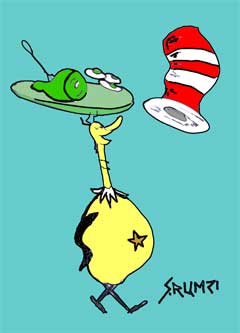The idle tramps always felt sure they could get a copper from Seth; they scarcely ever spoke to Adam. Adam Bede by George Eliot.
Reading those words I was mesmerized by the strength of the description. The showing instead of the telling of how forboding Adam’s character and looks were.
I read this to my beloved husband who does not read nor like old English Literature. He looked at me and said, “Poor Adam.”
To which I replied, “Poor Adam? No no. Listen to the words.”
So, I read it again. He nodded in agreement.
“Yes,” he stated, as matter of fact as he always was, “poor Adam must be a dweeb and the tramps don’t to go near him.”
Befuddled, I tried to understand what he was saying. Then it hit me. My dear husband thought that tramps were bad girls, the new fangled word for a woman of ill repute.
After the confusion lifted and my tears stopped rolling down my face, I explained that tramps in this instance were the poor folk who come to the door for food or drink. The confused look remained on his handsome face.
“Homeless people, Honey, you know. Those people who beg for food?”
As understanding dawned on him, he was disgusted with the language not with his misunderstanding.
So there you have it the old vs. the new. What is there to tell? One person’s classic is another person’s trash.
 Brilliant man. There is so much to say on this intelligent and wonderful man who grabbed the minds and hearts of so many of us, grown ups and children alike.
Brilliant man. There is so much to say on this intelligent and wonderful man who grabbed the minds and hearts of so many of us, grown ups and children alike.